How Does His Garden Grow?
A gardener’s passion and private gifts support a beautiful public space.
Take a walk through Allen Centennial Gardens with its director, Ed Lyon MS’01, and your head can spin.
The burning bush that reached past the Dean’s House porch roof is gone. The twisting knots of barberry hedge also are going. The irises have been torn out and replanted, leaving room for perennials among them. The vines on the pergola are ready for shearing. And the thicket of cutleaf sumac — while persistent — doesn’t stand a chance.
“I’m sure people might have rolled their eyes and wondered what was going on,” says Lyon, a tall and lanky man who clearly loves this garden in the heart of UW-Madison. He first worked there during his student days, then returned in July 2008 after stints in Chicago and Janesville.
What makes the difference between mourning old favorites and embracing change is Lyon, who is exuberant when he talks about his plans. “I’m not taking this garden and changing it from a beautiful place,” he says. “I’m modifying it to take it into the future.”
What makes the bigger impression is how Lyon delivers. After the burning bush was down, he planted an arc of ten Hydrangea paniculata ‘Limelight’ to frame the house porch. The bed’s four small maples and a variety of shrubs grafted to standards — so their branches begin about three feet above ground, leaving room for plantings below — present new options for smaller yards. Purple and chartreuse heucheras twine with Lady’s Mantle in a sinuous knot garden in front of a splash of summer annuals.
An admitted plant addict, Lyon began his working career in dairy science, then returned to school in 1997. “I’m a home gardener,” he says. “I came up through the ranks like anyone else and made a lot of mistakes.” Dennis Stimart, a UW horticulture professor, describes Lyon as an incredible plantsman.
“The thing I thought was a hobby was a really deep passion,” Lyon explains. “Every single one of us needs to be in something we feel passionate about.”
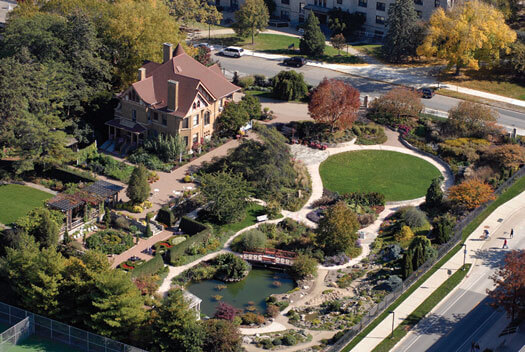
Allen Centennial Gardens serves as a classroom for students, gardeners and horticultural professionals — and as a serene getaway. Photos: Jeff Miller
As Allen Gardens turns twenty, Lyon acknowledges his debt to longtime head gardener Bill Hoyt, who initially built the grounds. After two decades, though, any public place needs to take stock. Lyon would like the Allen spot to become a popular stop for Madison visitors. The gardens must reach out to Generations X and Y, who have less connection to the land, he says.
Plans include raising funds for a new home-demonstration garden — featuring compost bins, rain barrels, and organic vegetables — that will address concerns about local, safe food. Mixing more kinds of plants into beds takes advantage of an explosion of new introductions, and experimenting with compost teas this year will start to make the gardens more organic and sustainable. The barberries are giving way to an herb garden, and University Housing Catering will use the gardens’ produce beginning this year.
Allen Gardens was first developed as an outdoor classroom for university students, the public, and horticultural professionals. “We have a responsibility to be more than beautiful,” Lyon says. Yet, while working at the Chicago Botanic Garden on 9/11, he also recognized an important need for beauty and serenity, as floods of people sought respite from the day’s tragedy.
“[Lyon] is trying to stay one step ahead of the public and the industry,” Stimart says. “That’s what we’re all about here. Pushing the envelope.”
In addition to his plant knowledge, Lyon is committed to education and outreach, and he understands fundraising. Those skills are needed to raise Allen Gardens’s visibility and to raise funds for a program that receives no state or university money.
“These gardens have been built entirely on the generosity of others,” Lyon says.
Although Allen Gardens is the smallest garden in which he has worked, Lyon is passionate about its future. “This is the garden I started at,” he says. “I love the university. I love this garden. It’s like my baby.”
For more information on how you can help UW-Madison, visit the UW Foundation Web site or call (608) 263-4545.
Published in the Summer 2009 issue
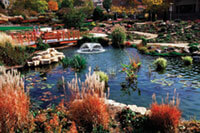
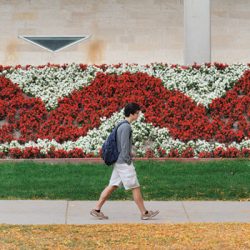
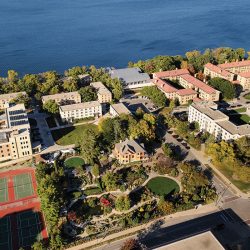
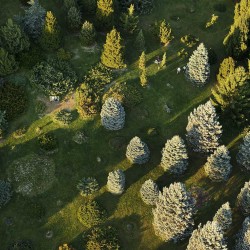
Comments
No comments posted yet.